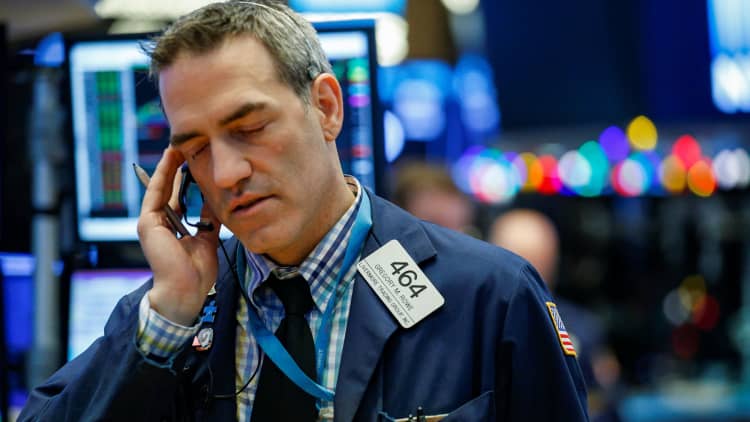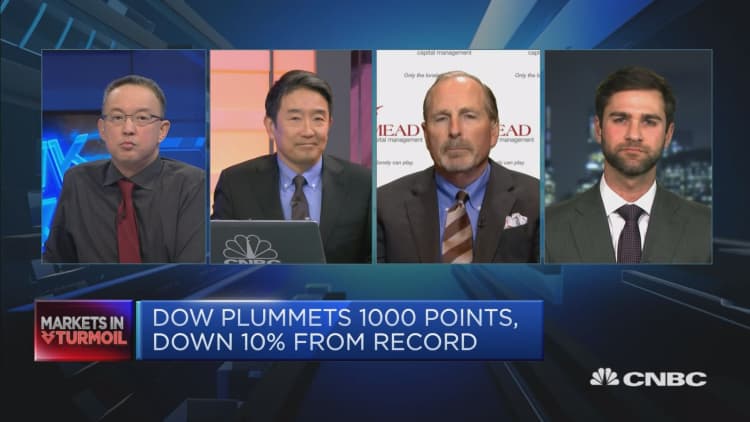U.S. stock funds saw a record $23.9 billion withdrawn by investors in the last week, according to new data, as the turmoil in global stock markets saw traders shun equities in favor of perceived safe havens.
Exchange-traded fund (ETF) outflows alone constituted the bulk of withdrawals, at $21 billion, while mutual fund outflows made up $3 billion of withdrawals, according to data from Thomson Reuters' Lipper unit. It also showed that tech stock funds suffered $1.1 billion in outflows in its worst losses since 2016.
Lipper has tracked fund flows since 1992 and says it was the worst outflows on record. "We're seeing a flight to safety here, money leaving equities, a lot of money going to money markets," Pat Keon, senior research analyst for Lipper, told Reuters. Money market funds are hugely popular in the U.S. where they are seen as a safe place to park cash during bouts of volatility. The funds are seen as low-risk vehicles that invest in short-term securities.
Lipper's figures tracked flows up until the week ended February 7, so it's likely that there were larger moves on Thursday as the Dow Jones industrial average plummeted more than 1,000 points and entered a full correction mode.
The money wiped out of mutual funds and ETFs in the last week reveals the staggering losses for U.S.-based equities, but they are losses that the bulk of financial experts say were inevitable given the market's historically high valuations through 2017 and into early 2018. All U.S. indexes enjoyed record highs, but many investors long warned that the markets were overbought and that a correction of at least 10 percent was due.

Positive employment and wage growth data from the U.S. on Friday last week spooked equity holders over fears that the conditions would push up inflation and therefore trigger faster interest rate rises from the Federal Reserve, spiking borrowing costs for companies. U.S. Treasury yields have also hit multi-year highs on the improving economic data.
The subsequent flight from equity funds, exacerbated by the losses wrought by some volatility instruments, cumulated in a global market sell-off that has continued despite a brief turnaround on Tuesday.
Many experts are confident in a market recovery, however.
"Given that U.S. markets are now in correction territory, it's likely that the most severe gyrations will hopefully have passed," said Kerry Craig, global market strategist at J.P. Morgan Asset Management, in a research note on Friday morning. "Volatility may remain for a while longer, but the strong economic backdrop and sustained earnings outlook means we continue to prefer equities."
He added that more than interest rate hikes themselves, a key factor for markets going forward would be the speed of the hikes. "Moreover, equities can handle higher rates and bond yields and the expectation has also been that these would rise. What they are not good at dealing with is the pace at which they move," he added.



